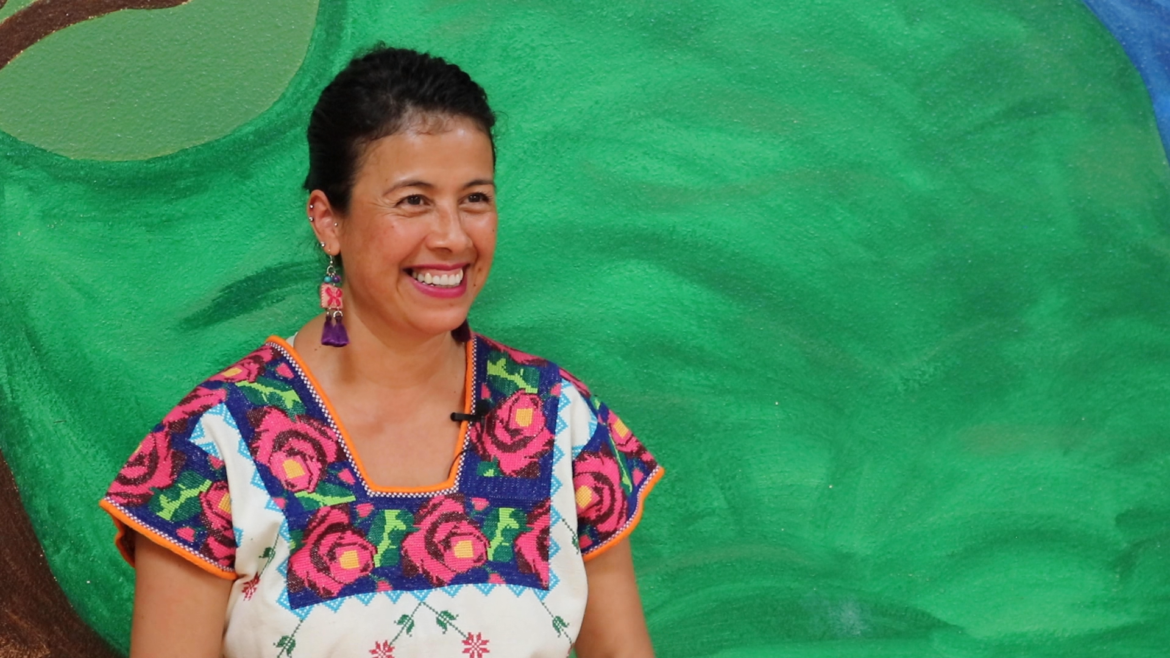Mi Escuelita Maya is in a working class neighborhood at the foothills of the Sierra Nevada in Chico, California. A mural on the building depicts children from diverse backgrounds flying kites in open spaces. One of the founders, Maria Trenda, helped build the preschool in 2007, just before the Great Recession, on a corner lot just blocks from her home. Her first estudiantes are now entering college.
Trenda’s school is an homage to her past. For 30 years, her mother ran a preschool in Mexico. After immigrating to the U.S. from Puebla, Mexico, Trenda worked as a nanny and a Spanish middle school teacher. Mi Escuelita Maya is her prayer for a brighter future. Students from all walks of life learn together, dance together, and cook together. They hear music from all over the world for the first time. Teachers speak in both Spanish and English.
“It is really important to know where you come from for you to be able to know where you’re going,” Trenda says.
Roughly 100 students, from ages 3 to 5, are served organic lunches five days a week. They share a pet guinea pig named Sunshine and a tiny restroom with miniature toilets. They play in a sandbox that wraps around a much-needed shade tree. The kiddos and peques, as Trenda calls them, seem to love it. The school combines sophisticated early childhood education and open-classroom philosophies; imagine a Montessori approach mixed with Waldorf methods all residing together in a bilingual bookbag.
As essential workers, Trenda and her staff of 11 worked in-person and online throughout the pandemic.
“I remember seeing some of the parents come in and saying, ‘You’re not closing, right?’” Trenda recalls. “And we’re like, no, we’re not gonna close. … Because we knew that, you know, people needed us.”

